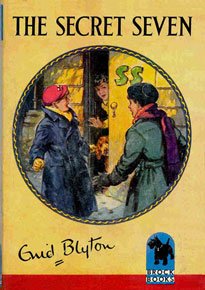
The Secret Seven or Secret Seven Society is a fictional group of child detectives created by Enid Blyton and based on the publisher’s children. They appear in one of several adolescent detective series which Blyton wrote.

The Ramona books are a series of eight humorous children's novels by Beverly Cleary that center on Ramona Quimby, her family and friends. The first book, Beezus and Ramona, appeared in 1955. The final book, Ramona's World, was published in 1999. Two books in the series were named Newbery Honor books, Ramona and Her Father and Ramona Quimby, Age 8. Ramona and Her Mother received the National Book Award. Sometimes known as the Beezus and Ramona series, as of 2012, the books were being marketed by HarperCollins as "The Complete Ramona Collection".

Ellen Foster is a 1987 novel by American novelist Kaye Gibbons. It was a selection of Oprah's Book Club in October 1997.
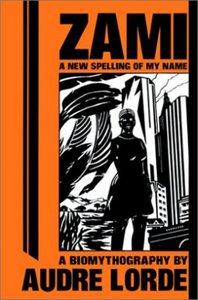
Zami: A New Spelling of My Name is a 1982 biomythography by American poet Audre Lorde. It started a new genre that the author calls biomythography, which combines history, biography, and myth. In the text, Lorde writes that "Zami" is "a Carriacou name for women who work together as friends and lovers", noting that Carriacou is the Caribbean island from which her mother immigrated. The name proves fitting: Lorde begins Zami writing that she owes her power and strength to the women in her life, and much of the book is devoted to detailed portraits of other women.

Roll of Thunder, Hear My Cry is a 1977 Newbery Medal awarded novel by Mildred D. Taylor. It is a part of her Logan family series, a sequel to her 1975 novella Song of the Trees.

Our Friend, Martin is a 1999 American direct-to-video animated children's educational film about Martin Luther King Jr. and the Civil Rights Movement. It was produced by DIC Entertainment, L.P. and Intellectual Properties Worldwide, and distributed by 20th Century Fox Home Entertainment under the CBS/Fox Video label. The film follows two friends in middle school who travel through time, meeting Dr. King at several points during his life. It featured an all-star voice cast and was nominated for an Emmy Award in 1999 for "Outstanding Animated Program ". It was also the final release under the CBS/Fox Video name before it was retired. It was released three days before Martin Luther King Jr.'s 70th birthday.
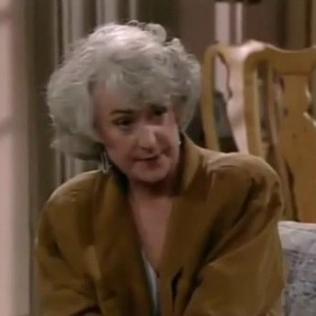
Dorothy Zbornak is a character from the sitcom television series The Golden Girls, portrayed by Bea Arthur. Sarcastic, introspective, compassionate, and fiercely protective of those she considers family, she is introduced as a substitute teacher, and mother. At the time, Dorothy was recently divorced from her ex-husband Stanley. She, her mother Sophia Petrillo, and housemate Rose Nylund all rent rooms in the Miami house of their friend Blanche Devereaux. Dorothy often acted as den mother and voice of reason among the quartet, "the great leveler" according to Bea Arthur, though at times she also acted foolishly or negatively and would need her friends and family to help ground her again. Arthur also considered her the "great balloon pricker," someone who openly defied and called out hypocrisy, injustice, cruelty, delusion, short-sighted remarks, and behavior she simply found dull, ill-considered, rude, or unreasonable.

Let The Circle Be Unbroken is the 1981 historical children's novel by Mildred D. Taylor. A sequel to Roll of Thunder, Hear My Cry (1976), the book is set in Mississippi in 1935, and continues the saga of the African-American Logan family as they struggle to make a living sharecropping during the Great Depression. Several trials and tribulations are faced by the family told from the perspective of the African-American experience, including issues of racism in the criminal justice system, interracial marriage, "passing", and poverty. Ultimately, the novel emphasizes themes of self-respect, hard work, and pride. It won the Coretta Scott King Author Award in 1982. A recording by Lynne Thigpen was named to the 1996 ALA Notable Children's Recordings list.
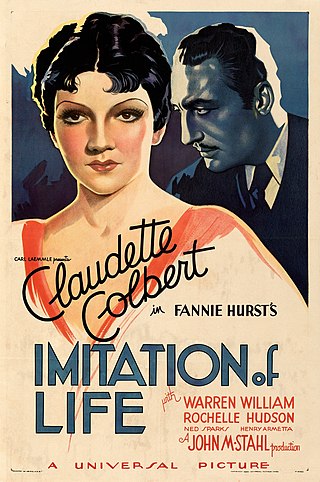
Imitation of Life is a 1934 American drama film directed by John M. Stahl. The screenplay by William Hurlbut, based on Fannie Hurst's 1933 novel of the same name, was augmented by eight additional uncredited writers, including Preston Sturges and Finley Peter Dunne. The film stars Claudette Colbert, Louise Beavers, Warren William, Rochelle Hudson, and Fredi Washington.

Starring Sally J. Freedman as Herself is a 1977 young adult novel by Judy Blume. It is set in 1947 and follows the imaginative 10-year-old Sally, who likes to make up stories in her head, her family moves from New Jersey to Miami Beach. While not as controversial as some of her other novels, Blume does manage to address the following themes of late 1940s life in America: racism, anti-Semitism and sibling rivalry. This novel is her most autobiographical, with many parallels between Blume's own life and that of Sally. Blume has said, "Sally is the kind of kid I was at ten."

Ramona Forever is a humorous children's novel written by Beverly Cleary. The seventh book in the Ramona Quimby series, continues the story of Ramona, her older sister, Beezus, and their family. They are finally old enough to stay home together, and they work hard to get along. Mrs. Quimby is expecting a baby and Aunt Bea gets engaged in a book that sees Ramona coping with growing up. It was originally published in 1984.

Five Go Off In A Caravan is the fifth book in the Famous Five series by the British author, Enid Blyton and published by Hodder and Stoughton. The book includes a circus boy character named Nobby, whose name was changed to Ned when publisher Hodder Children's Books made extensive editorial revisions to the Famous Five series of books.

Going to Meet the Man, published in 1965, is a collection of eight short stories by American writer James Baldwin. The book, dedicated "for Beauford Delaney", covers many topics related to anti-Black racism in American society, as well as African-American–Jewish relations, childhood, the creative process, criminal justice, drug addiction, family relationships, jazz, lynching, sexuality, and white supremacy.
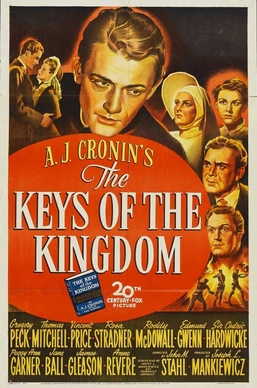
The Keys of the Kingdom is a 1944 American film based on the 1941 novel The Keys of the Kingdom by A. J. Cronin. The film was adapted by Nunnally Johnson, directed by John M. Stahl, and produced by Joseph L. Mankiewicz. It stars Gregory Peck, Thomas Mitchell, and Vincent Price, and tells the story of the trials and tribulations of a Roman Catholic priest who goes to China to evangelise.
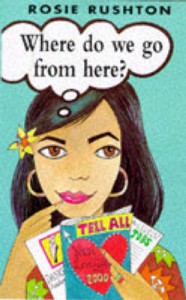
Does Anyone Ever Listen? is a young adult novel by Rosie Rushton, first published with this title in 2006 by Piccadilly Press. It is the fourth and last part of her Leehampton series. It was first published under the title Where Do We Go From Here? by Piccadilly Press in 1998 and was reissued as Does Anyone Round Here Ever Listen? by Puffin Books in 1999.

Forged by Fire is a realistic fiction novel written by Sharon M. Draper in 1997. It's the second book in the Hazelwood High Trilogy. It received the Coretta Scott King Award.
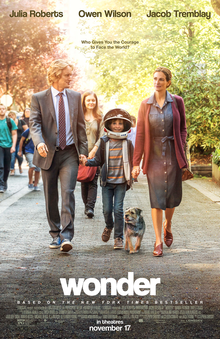
Wonder is a 2017 American coming-of-age family drama film directed by Stephen Chbosky, who co-wrote the screenplay with Steven Conrad and Jack Thorne. It is based on the 2012 novel of the same name by R. J. Palacio and stars Julia Roberts, Owen Wilson, Jacob Tremblay, Mandy Patinkin, and Daveed Diggs.
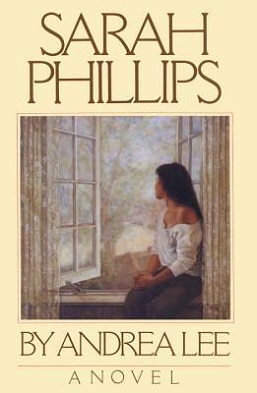
Sarah Phillips is a novel written by Andrea Lee in 1984. The novel takes place in Philadelphia in the period after the civil rights movement, and centers the protagonist, Sarah Phillips, born in 1953, a daughter of a black middle-class family living in the suburbs of Philadelphia. From a first-person narrative point of view, Sarah offers chronological snapshots of her and her family's lives. She illuminates realities of middle-class Black American life, particularly around the time after the Civil Rights Movement via fictionalized stories. A later version of the book begins with a foreword by Valerie Smith. She talks about her experiences teaching this novel in her own class, and how her students did not take a liking to the protagonist, Sarah Phillips. She then contextualizes the novel, which actually began as a set of short stories debuted in The New Yorker, published during a period in which the black middle class rose in numbers. Sarah Phillips, Smith says, is in a lot of ways everything that her predecessors, both in terms of fictional characters like her and real world individuals who identified with her story, could dream of: being black and middle class, achieving success in the eyes of white America.

















